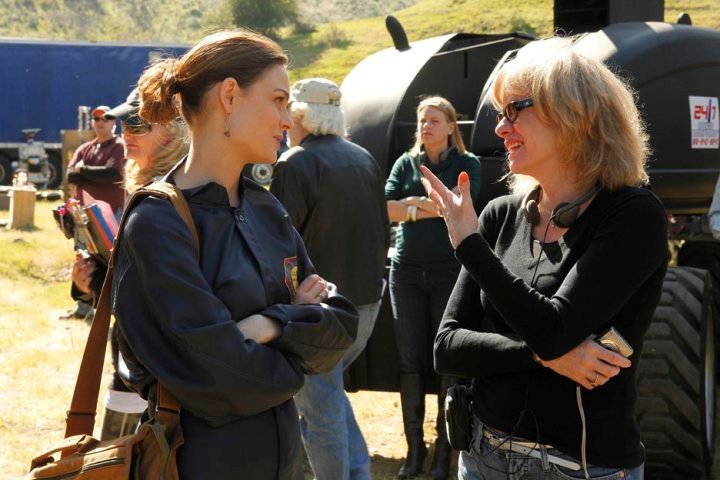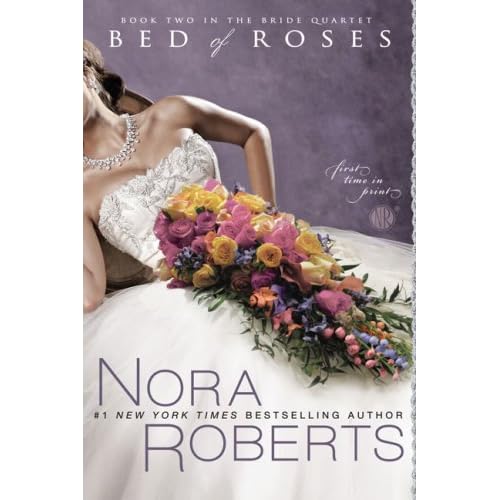Defying the genre's expectations

The premise behind Mary Balogh's
A Precious Jewel
is
intriguing to me as a writer.
The book is an (unaltered) rerelease from 1993 featuring two characters from
The Ideal Wife
— one of whom is only a minor character, a friend of the hero, and the other who is never seen onscreen as it were but only talked about in her absence. To make matters more complicated in terms of the Regency formula,
the former does not fit the standard hero mold in his own right, being rather unintelligent and not as fabulously titled as most, and
the woman in question is his mistress.
Mary Balogh talks about the dilemma in her introduction to the rereleased
A Precious Jewel:
I was writing traditional Regencies at the time and could hardly have a working prostitute as a heroine and a beta male as a hero!
But the characters "haunted" her to the point that, against fellow authors' advice, Balogh sat down and wrote their story in two weeks. She was subsequently surprised when her editor accepted it without question or revision.
I can understand why, though. It was
riveting to get through, even as I was made uncomfortable by some of the characterizations and scenarios. I just couldn't stop reading till these two interesting people's lives were resolved.
Now, Balogh does
"cheat" a little by making Priscilla Wentworth, the aforementioned prostitute, a down-on-her-luck gentlewoman instead of a typical working-class prostitute. But it's true that Sir Gerald Stapleton is a beta male. He's titled, but he's not astonishingly handsome. More significantly, he's one of the only heroes I've ever read about who
isn't all that bright. Usually they're all geniuses and
glib with words and
magnificent in bed — Gerald hasn't ever kissed a woman before he meets Priscilla.
But their relationship doesn't start with kissing. It starts with something ostensibly much more intimate —
a regular encounter at a brothel where Priscilla, aka Prissy, is working. Gerald is so dissociated from his own feelings and so mistrustful of women that this is the only way for him to connect. There were elements of this that were distasteful to read, but Balogh doesn't do a bad job with it — she makes it clear that
the way Gerald is treating women and Prissy in particular is not healthy after all, and of course he must change before their love can flourish.
Priscilla, on the other hand, rather besottedly falls in fantasy-love with Gerald from their first meeting, and there is a little sense of "but why?" — for me, more in terms of
Why would a bright woman love a dim man? than the other (many) considerations. But Balogh makes it justifiable by showing us Priscilla's attraction to Gerald's wounded and kind heart (underneath it all), and Priscilla never forgets that she is not a suitable candidate for any love or commitment from him in return — she accepts her role in his life and embraces her fantasies for what they are. Priscilla's development becomes more pleasing toward the end, as
Priscilla has to learn to be who she is at heart and find people who accept her for herself, past and all. I was a little worried that I couldn't respect Priscilla (not for the sex worker part, but for her lack of feminism about doing Gerald's bidding), but she becomes more real and nuanced to me as the book goes on, as does her development.
In fact, if Gerald is a sort of beta hero, then Prissy is a sort of beta heroine. Every time I read a
gentlewoman-becomes-a-sex-worker plot, I have to wonder how believable it is. Priscilla suffers the loss of close family members and ends up seeking out her former governess at her "finishing school" — not realizing the finishing school is actually a high-class whorehouse. Priscilla decides to throw her lot in with Miss Blythe's "girls." Wouldn't most women raised as Priscilla was and given the morals of her upbringing, when presented with several possible options for making a living,
choose anything but prostitution? (And, for that matter, how exactly did her ex-governess end up a madam?) I'm still not entirely convinced her choice was realistic, but I realized that if her character had been entirely strong-minded and defiant of expectations, probably she would not have wound up a sex worker at all or would have been a different kind of mistress, and the story would not have happened. So in that sense, her personality (or lack of a strong one, at least) makes a certain sense. I did appreciate how Balogh wove into Priscilla's thoughts a reconsideration of her own choice: that Prissy chose that route before she fully understood the implications, and that she wouldn't necessarily choose it again if given the chance. Indeed, she is given something of a second chance toward the end.
Here's an example that stood out to me in terms of making the earlier portions of sex-for-hire seem less sordid, by pointing out that
their relationship at the start was inadequate. In this scene, Gerald is beginning to realize this as he forces her, through his own fear and distrust and immaturity, into the old positions of mistress and employer again:
But she did and said only what her training had taught her to do and say. And that smile, which had always seemed so warm to him, was not warm at all, he saw when he looked searchingly into her eyes. It was not warm, and it was not a smile. It was a shield, a cold and metallic shield behind which she hid.
…
And so he allowed himself to fall into the ritual she began. He bedded her, and even told her before he joined her on the bed and mounted her that he wanted it the old way. He did not love her body at all. He used it for a pleasure that did not turn out to be pleasure but only physical satiety.
And he was punished justly. She was warm and soft and yielding—and utterly passive. The way he liked his women to be. Sex without a relationship. Physical intimacy without involvement. The illusion that he was in control, that he was master.
It's portions like this that
make me as a reader feel less guilty for enjoying the story, even though the hero's often not all that heroic, and even though, as a woman and a feminist, I wish Priscilla had been stronger from the start and not quite so acquiescent.
I feel like both Priscilla and Gerald mature in believable ways over the course of the book, until they become fit partners for each other —
who come together not because of circumstance but through choice and genuine love. I thought the very end was extremely touching and not a little humorous.
I'm not trying to spoil the plot, but of course you probably know by now that romance novels
end happily…. I'll stop there, though, and let all the details be a surprise!
Limits to doing the unexpected in your own writing
I just wanted to talk a little more about
doing the unexpected with your writing. I think there are limits and caveats but also the potential for great things.
First of all,
we're not all Mary Balogh with a dedicated following
(hi, Mary! *waves*) and a loyal editor. If you're looking to publish your
first novel, in whatever genre (including literary), it's probably best to stick to the tried-and-true. Not the boring — put your own spin on it — but when you're trying to get your foot in the door, this is not the time to reinvent the genre.
Secondly, there are
limits to how far you can bend the expected even when you
are Mary Balogh. If she'd written this same novel but had the characters die in the end (spoiler: They don't!), that would have defied the
point of the genre, which is romantic resolution.
Thirdly, and maybe this isn't third, because I didn't really think through this in numbered progression but just as a jumble of thoughts, so maybe it's really just related to one and two, and I'm going to start a new sentence now. [Deep breath.] I think
it's easier to change details within a framework than the whole framework itself. For instance, within a typical romance novel formula of guy + girl = love and marriage, you can play around with back story and location. I've seen successful Regencies set in China or the Arabian desert, or dealing with tough issues like incest, alcoholism, spousal abuse, and adultery. There's plenty of room to play within the framework, but it would be sort of silly to write a poem with only 4 lines and call it a sonnet. If you're writing a romance, it needs to be romantic. There are subgenres you can write within, if you want to write a romance between two women, or one set in a futuristic world, or one that contains elements of the supernatural. My understanding, though, is that all of these still need to be … yes … romantic.
Fourthly (?), as relates to
heroes and class distinctions and subgenres as well (fifthly?): Regencies are about upper-class England. There it is. Someone in your novel should be part of that world. But I think a successful Regency could play with this by making one or more characters
pretending to be part of the world, for instance. And I've certainly seen plenty where one or the other protagonist was of a lower class or not from England originally. Outside the Regency world, there's more leeway to play with class. Contemporary novels are wide open in terms of where you want to set your protagonists on the income ladder, and where in the world you want to plop them. Historicals tend to deal more with the upper class, regardless, but I've certainly read some successful novels that deal with solely middle-class or working-class characters. Western romances (as in Wild Western) in particular come to mind. Most romances play with upper-class settings, and my thought on that is — it's fantasy. It's more escapist to ponder how the other half lives and loves.
I'll leave you with a warning. I was in a writing class where a fellow student was reading his short story. It was written in the first person, and there's a fight at the end where the protagonist narrator is hit in the head, and there the story ends. "Wait, what happened?" we asked in dawning disbelief. The student smiled.
"He died." He was quite pleased with himself.
He died? The narrator
died? Without warning or foreshadowing or intimation that this was a ghost writing the story?
Um, no. The Lovely Bones
and
American Beauty
can get away with breaking one convention because they take the time to set up a believable reason for it.
Don't break rules simply for the sake of being different. It's much better to be different with a purpose that helps your story!
When have you broken with convention in your writing or been tempted to? Did it work out the way you wanted? What (published) books have you read that have successfully defied convention?





















